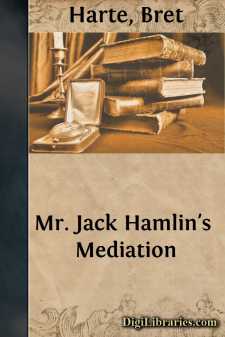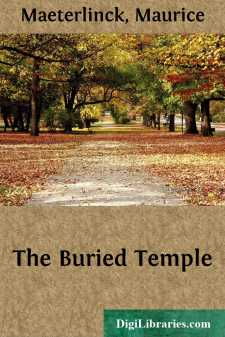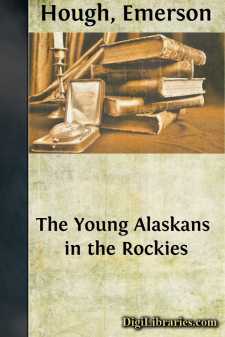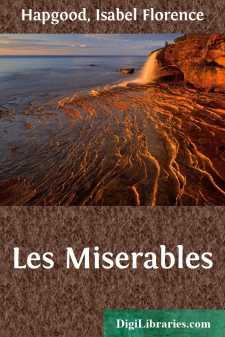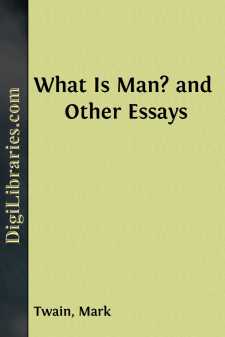Literary Collections
- American 84
- Ancient, Classical & Medieval 14
- Asian 1
- Australian & Oceanian 1
- Canadian 55
- Continental European 121
- English, Irish, Scottish, Welsh 179
- Essays 160
- General 24
- Letters 46
- Middle Eastern 1
Literary Collections Books
Sort by:
by:
Bret Harte
MR. JACK HAMLIN'S MEDIATION At nightfall it began to rain. The wind arose too, and also began to buffet a small, struggling, nondescript figure, creeping along the trail over the rocky upland meadow towards Rylands's rancho. At times its head was hidden in what appeared to be wings thrown upward from its shoulders; at times its broad-brimmed hat was cocked jauntily on one side, and again the...
more...
THE MYSTERY OF JUSTICE 1 I speak, for those who do not believe in the existence of a unique, all-powerful, infallible Judge, for ever intent on our thoughts, our feelings and actions, maintaining justice in this world and completing it in the next. And if there be no Judge, what justice is there? None other than that which men have made for themselves by their laws and tribunals, as also in the social...
more...
PREFACE The object of this book is to give the English-speaking public, in a convenient form, as faithful and readable a copy as the translator was capable of making of a document unique in the literature of antiquity. Whether we regard the correspondence of Cicero from the point of view of the biographer and observer of character, the historian, or the lover of belles lettres, it is equally worthy of...
more...
Here, if I cut my coat according to my cloth, t should have a garment which this whole volume would hardly stuff out with its form; and I have a fancy that if I begin by answering, as I have sometimes rather too succinctly done, that we have no more a single literary centre than Italy or than Germany has (or had before their unification), I shall not be taken at my word. I shall be right, all the same,...
more...
by:
Emerson Hough
ROB, JOHN, AND JESSE IN CAMP “ Well, here we are, fellows,” said Jesse Wilcox, as he threw down an armful of wood at the side of the camp-fire. “For my part, I believe this is going to be about the best trip we ever had.” “That’s what I was telling Rob to-day,” said John Hardy, setting down a pail of water near by. “But I hope I won’t have to carry water up a bank a hundred feet high...
more...
RICHARD HENRY DANA, SENIOR (1787-1879)Richard H. Danaichard Henry Dana the elder, although he died less than twenty years in 1787, in Cambridge, four years after Washington Irving. He came of a distinguished and scholarly family: his father had been minister to Russia during the Revolution, and was afterwards Chief Justice of Massachusetts; through his mother he was descended from Anne Bradstreet. At...
more...
CHAPTER I—M. MYRIEL In 1815, M. Charles-Francois-Bienvenu Myriel was Bishop of D—— He was an old man of about seventy-five years of age; he had occupied the see of D—— since 1806. Although this detail has no connection whatever with the real substance of what we are about to relate, it will not be superfluous, if merely for the sake of exactness in all points, to mention here the various...
more...
ABBOTT, JACOB (1803-1879). —Educationalist and miscellaneous author, b. at Hallowell, Maine, ed. at Bowdoin Coll. and Andover, entered the ministry of the Congregational Church, but was best known as an educationist and writer of religious and other books, mainly for the young. Among them are Beechnut Tales and The Rollo Books, both of which still have a very wide circulation. ABBOTT, JOHN STEVENS...
more...
by:
Richard King
FOREWORD BY SIR ARTHUR PEARSON, BART., G.B.E. Those who buy "Over the Fireside" will purchase for themselves the real joy of mentally absorbing the delightful thoughts which Mr. Richard King so charmingly clothes in words. And they will purchase, too, a large share of an even greater pleasure—the pleasure of giving pleasure to others—for the author tells me that he has arranged to give half...
more...
by:
Mark Twain
WHAT IS MAN? I a. Man the Machine. b. Personal Merit (The Old Man and the Young Man had been conversing. The Old Man had asserted that the human being is merely a machine, and nothing more. The Young Man objected, and asked him to go into particulars and furnish his reasons for his position.) Old Man. What are the materials of which a steam-engine is made? Young Man. Iron, steel, brass, white-metal,...
more...


